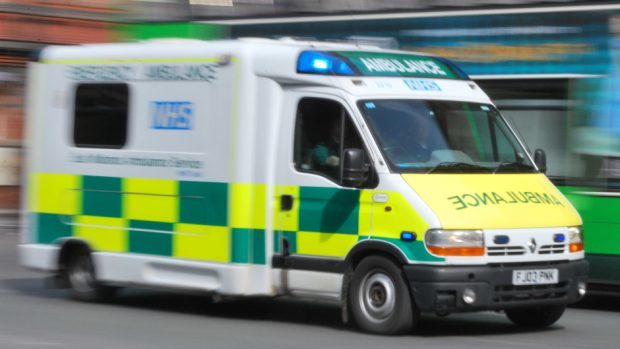Paramedics have wasted more than a day-and-a-half racing to calls that turn out to be “selfish and dangerous” hoax calls.
Since 2017, there have been more than 100 malicious calls made to ambulances covering Aberdeen and Aberdeenshire.
Broken down, the 71 calls in the city equate to 1,346 minutes, or 22 hours – nearly a full day.
In Aberdeenshire, the calls were equivalent to 12 hours.
Currently on scene at an apparent hoax call… meanwhile a 4 year old with DIB is waiting for an ambulance alongside a 96 year old who has been on the floor for 4 hours. #hoaxcallscostlives
— AParamedicsDiary? (@a_paramedics) November 12, 2019
Last night, politicians said they were “disgusted” at the figures.
North-east MSP Mike Rumbles said: “It is appalling that so many hoax calls are being made at a time when our NHS services are struggling to cope with both rising demand and limited resources.
“The Scottish Government and Police Scotland must clamp down on malicious callers and make it clear that this is a serious crime that will be met with a tough punishment.”
While the total amount of time spent on malicious calls in Aberdeen and Aberdeenshire may seem small, Aberdeen Central MSP Kevin Stewart stressed even one malicious call can be the difference between life and death for a person in a true emergency.
He said: “Time is crucial in these situations and if an ambulance is away from its station, then people in genuine medical emergencies could be put in danger.
“We should all hold the utmost respect for frontline staff in our emergency services and folk in Aberdeen will be disgusted by this behaviour.”
A police spokeswoman said: “Making hoax calls to the emergency services is a selfish and dangerous act.
“We take a dim view of anyone who carries out this type of behaviour and we will continue to treat such calls seriously and pursue those responsible.”
Last night, a Scottish Ambulance Service spokesman said: “Anyone who calls 999 without a genuine need is potentially putting lives at risk by tying up valuable resources that could be needed to respond to a life-threatening call.”
He added that in some cases, while not an emergency, hoax calls can occasionally be the result of a “social issue” in which assistance is still provided for the individual where possible.
A spokesman for the Scottish Government added: “Hoax calls are not victimless pranks but can distract and divert vital resources and attention away from those who are in life-threatening situations.
“The risk that poses is unacceptable and we condemn the making of any hoax call.
“The Scottish Ambulance Service has been clear that inappropriate, malicious or nuisance callers will be reported to the police, who will investigate and act accordingly.
“This is the right and proportionate procedure as the Ambulance Service also point out that in many cases, the call is the result of a mental health issue, rather than malice, and the patient may still need help. In these cases, the relevant agencies are advised so that appropriate care can be provided.”
